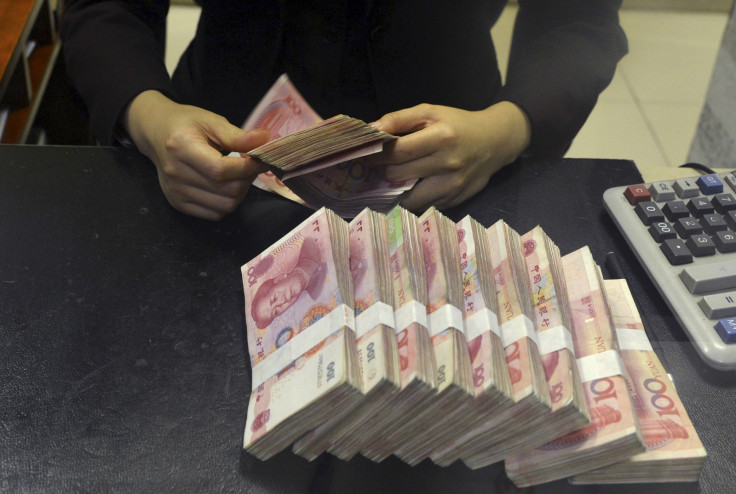China devalues yuan by 1.9% after slump in exports

China has devalued the yuan to a near three-year low against the US dollar, saying it was a "one-time correction" to make the currency's value more dependent on market movements.
The People's Bank of China (PBOC) revised its central parity rate by 1.9% to 6.2298 yuan per dollar – the lowest level in almost three years - from the previous 6.1162.
The bank sets a daily midpoint for the value of the yuan against the dollar, from which it is allowed to trade 2% higher or lower.
The surprise move comes after official data revealed Chinese exports plunged 8.3% compared to a year ago in July, well below analysts' expectations of a 1.5% drop. A weaker currency makes exports more competitive in foreign markets and pushes down borrowing costs.
'Move towards reality'
"The central parity of the RMB (yuan) has deviated from the market rate to a large extent ... which, to some extent, has undermined the market benchmark status and the authority of the central parity," a PBOC spokesman said on 11 August.
The fixing of the central parity will now be based on how the yuan closes in the previous trading session, he added.
"It looks as though the weakened trade numbers were the last straw for China's tolerance of a strong exchange rate in the face of weak global demand for its exports. It is certainly to be welcomed after an extended period of stability in dollar-yuan.," Westpac senior currency strategist Sean Callow told CNBC.
CCB International Securities equity strategist Mark Jolley said: "They've been holding up the currency. All they are doing now is letting it fall closer to where it should be. It's not manipulation, it's just moving towards reality."
Vishnu Varathan, an economist with Mizuho Bank in Singapore however thinks otherwise. He told Reuters: "What is really important is for markets to observe where the renminbi really goes over the next few days to see whether this is indeed a one-off adjustment or a sustained trend."
The news agency noted that the devaluation marks a retreat from China's strong-yuan policy aimed at supporting domestic demand, help Chinese firms borrow and invest abroad and encourage foreign firms and governments to make greater use of the currency.
Special Drawing Rights
Last week, the International Monetary Fund said it was considering maintaining its benchmark currency basket until September 2016 amid pressure from China to add the yuan to the Special Drawing Rights (SDRs).
The current basket – which includes the US dollar, the euro, the pound sterling and the Japanese yen – is due to expire on 1 January.
The yuan met the criteria of being a major currency of international trade but it also had to meet the IMF's "freely usable" criterion to be included in the SDRs, the Washington-based lender said.
Zhou Hao of Commerzbank AG in Singapore believes the devaluation was part of its reform agenda to help the yuan become an international reserve currency, Reuters reports.
"I don't think this is a reaction to the weak trade data over the weekend. I think it's because of the SDR." he said, adding that the Chinese government "needs to have a market-based mechanism and it needs volatility.
© Copyright IBTimes 2025. All rights reserved.






















